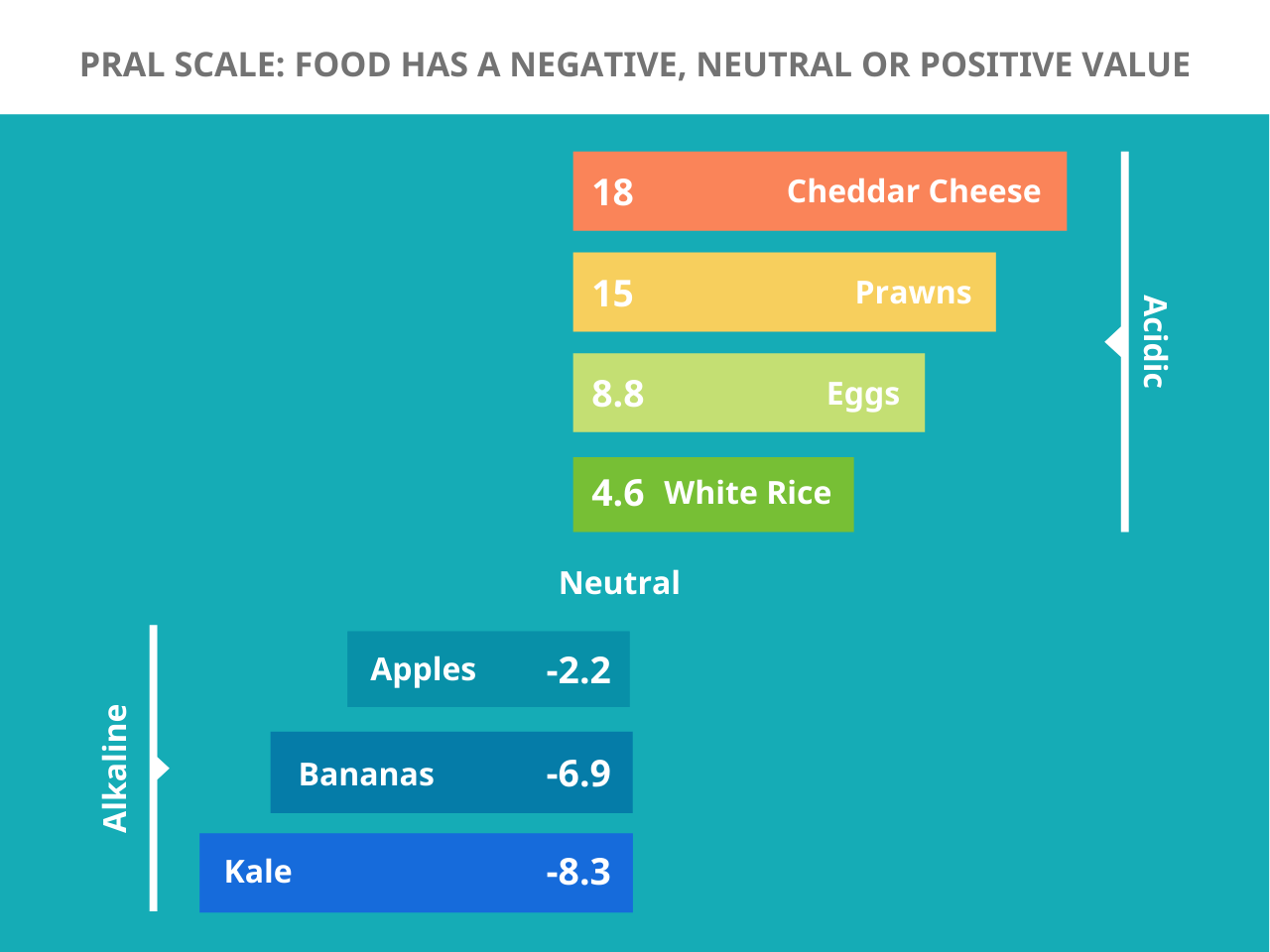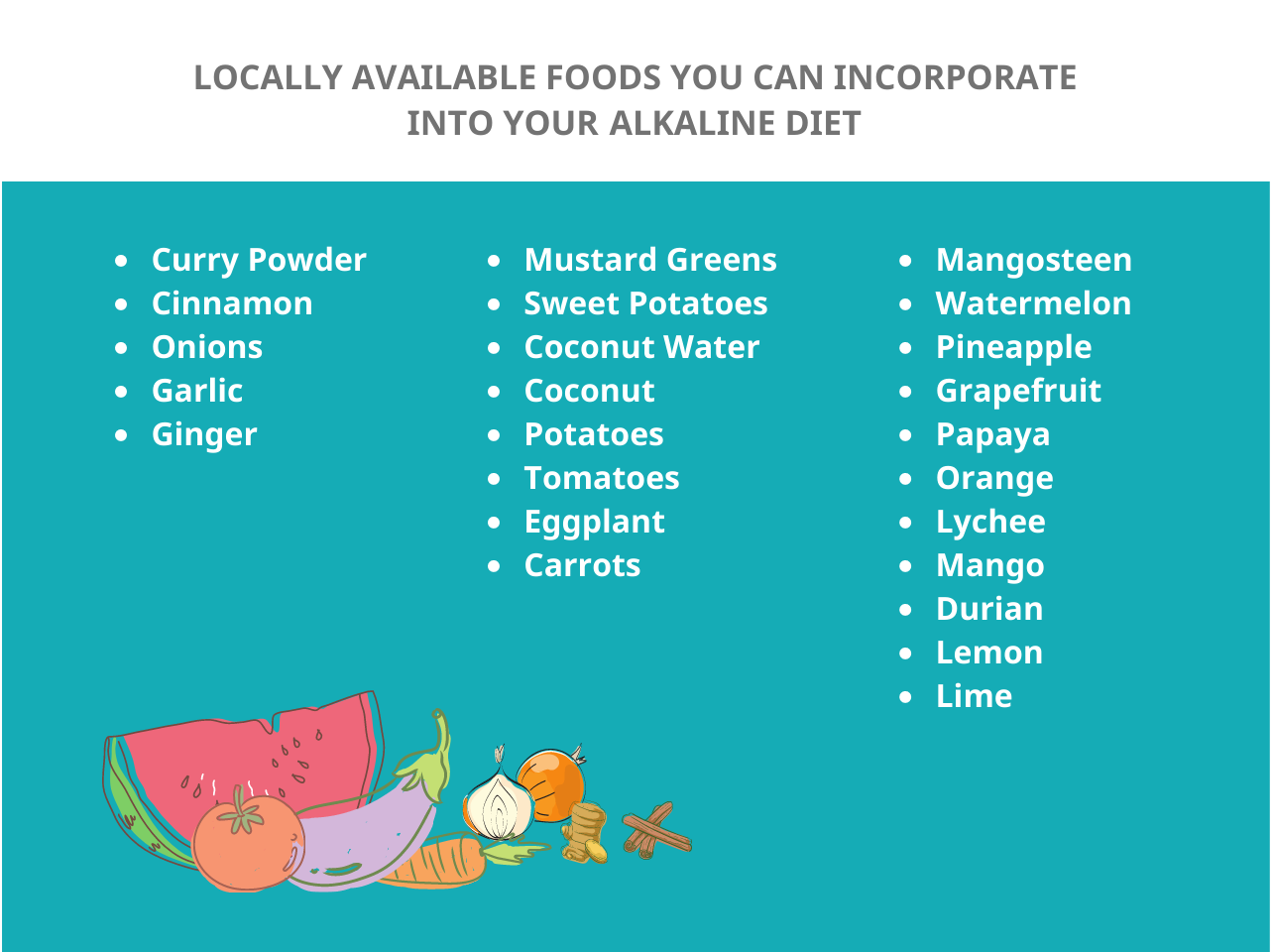Eating Healthy:
What is an Alkaline Diet and is it Good for Me?

The alkaline diet has gained recent traction and popularity by emphasizing an increased consumption of alkaline-based food to counter an acid-rich diet which is believed to cause illnesses such as cancer and bone loss.
Proponents of the alkaline diet suggest that by consuming more alkaline-based ingredients, made up primarily of fresh fruits and vegetables, we will be able to maintain our body’s optimal and neutral pH level, keeping us healthy and reducing our susceptibility to illnesses.
While there is significant debate as to whether or not the alkaline diet can affect our body’s pH level, there is global consensus that eating more fruits and vegetables are good for our bodies and internal systems. Furthermore, the alkaline diet isn’t vegetarian or vegan-based, making it a more acceptable and accessible eating plan for those who would like to continue having some meat with their meals.
The difference between alkaline levels in your body and food
Consuming alkaline food doesn’t mean consuming food that registers as alkaline on the pH chart. You can’t stick a litmus paper into your piece of meat or fruit to determine if your ingredient is alkaline or acid. The alkaline diet is not your school science experiment! Although, some basic knowledge about alkaline and acid levels can certainly be beneficial.


Food acidity or alkalinity is determined by the residue of minerals, protein and phosphorus left behind after it has been consumed and metabolizedi. This is known as the PRAL scale, or “Potential Renal Acid Load”.


The PRAL scale has helped us discover and determine that a food’s pH level in its original form does not necessarily reflect its alkalinity or acidity once our bodies have metabolized it. In fact, foods typically considered as acidic, such lemons or pineapples, are actually alkaline once it has been metabolized. Likewise, foods high in calcium, which typically measures as alkaline on the pH scale, like meat or milk, actually leave an acidic residue in your body.
How food consumption affects your body’s alkaline levels
Even though the primary message of the alkaline diet is that it can and will affect your body’s alkaline levels, scientific research has determined that it actually does notii. This is because different parts of our body have very different acidity and alkaline levels to begin with. While our blood pH levels are between 7.36-7.44, our stomach, on the other hand, is quite acidic with pH levels of 2 to 3.5. These acids are essential as they help to digest our food.
In fact, our body comes inbuilt with a finely tuned system that monitors our pH levels while functioning to ensure they remain within acceptable levels. It is extremely difficult to change one’s blood pH levels, and this only occurs in certain diseased states such as diabetic ketoacidosis.
The alkaline diet recommends we monitor the pH levels of our urine to gauge the pH levels of our body (first thing in the morning, preferably). However, this is not the most accurate measure of one’s overall health as these values constantly change based on what you ate, how your kidneys function, and what your body is expelling.
Can the alkaline diet cure or prevent illnesses?
Despite claims by its proponents, there is insufficient scientific evidence to suggest that an alkaline diet can prevent cancer, cardiovascular diseases or osteoporosisiii. While many believe cancer grows in an acidic environment, the opposite is actually true. Cancer grows in normal body tissue, which is typically alkaline. Instead, cancer cells create an acidic environment, and tumours tend to grow faster in these acidic environments.
Osteoporosis, on the other hand, is linked to the loss of protein collagen in the bone, which in turn is linked to the loss of orthosilicic acid and ascorbic acid. In fact, high protein and acidic-forming diets are essential to help retain calcium, which repairs and protects bone and muscle.
The research on whether an alkaline diet can protect one from cardiovascular diseases has so far been conflicting, with different studies finding different results when testing focus groups on high acid, high alkaline and neutral dietsiv. At this point in time, there is definitely a lack of evidence to support the alkaline diet as a cure for or prevention of cardiovascular disease.
It would, however, be wrong to dismiss the alkaline diet completely.
While it may not cure cancer or osteoporosis, the alkaline diet is particularly helpful for diseases linked to high levels of uric acid, such as gout, and can be used to prevent urinary tract infections and the formation of kidney stonesv. These diseases are primarily related to the kidneys, and a study published in 2015 by The American Journal of Nephrology found that a high acidic diet poses higher risks to developing chronic kidney diseasevi. In this instance, the alkaline diet can certainly be beneficial towards ensuring healthy kidneys and kidney functions.
What alkaline foods should I be eating more of?
Most fresh fruits and vegetables have high alkalinity on the PRAL scalevii viii. However, not all of us have easy access or the budget for ingredients like kale, parsnips, amaranth or buckwheat. So, here is a list of locally available foods you can incorporate into your alkaline diet – it might just surprise you:


Moderation, of course, is always key, and we encourage you to do your research and seek your doctor’s advice before deciding if the alkaline diet for you especially if you are taking medication, undergoing treatment, or have any diseases and illnesses. While including more fresh fruits and vegetables in your diet is always considered a good thing, you probably shouldn’t overdo it with the durian. Plus, always be mindful and remember not to neglect your body’s other nutritional needs.
Disclaimer
This article is not intended as a substitute for consultation with a licensed healthcare practitioner. Before you begin any fitness programme or change your nutritional regimen, please consult a nutritionist, doctor or other licensed healthcare practitioner to ensure you are in good health and that these diets will not harm you.
Reference
i 19 Highly Alkaline Foods That Will Benefit Your Body; Yuri Elkaim
ii The Alkaline Diet: An Evidence-Based Review; Healthline; 2 December 2016
iii The Alkaline Diet: An Evidence-Based Review; Healthline; 2 December 2016
iv What is the Alkaline Diet?; verywell fit; 03 February 2020
